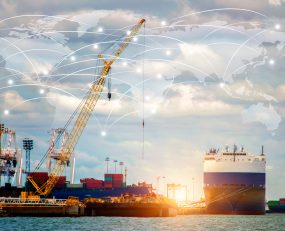
The European parliament voted earlier in the month to expand the idea of ‘Emissions Trading System’ to all forms of shipping and with none of the so-called ‘exclusions’ applied to sectors such as air freight. Rather the EU’s legislature wants all ship owners and operators to have to purchase permits for any traffic in or out of a port in the EU or even the European Economic Area.
In reality, the European Parliament has little power, however, earlier this week the European Commission, which the EUs administrative body that de facto makes the rules in the organisation, leaked a document to journalists outlining its own ideas on this subject. This was apparently somewhat less ambitious, with the news agency Reuters quoting the document as stating that emissions trading would apply to “at least intra-EU maritime transport”. The European Parliament suggested a timeline of 2022 to apply any new regulations, but the European Commission seems to be suggesting 2023 as the earliest application.
The caution of the bureaucrats is understandable. The implications of any attempt to regulate inter-continental shipping would have a significant impact on relationships with trading partners. The last time the EU tried to do something like this, introducing carbon permits for airlines, it exploded in a minor trade war with the US, leading to the US Congress forbidding any American company to pay such permits. In the end, a weak compromise was arranged and airlines were given effective exemptions.
If some kind of carbon trading deal is arranged, the impact on shipping lines could be comparable to the introduction of new ‘IMO 2020’ bunker fuel emissions rules last year. Lines would have to introduce new technology and/or face higher fuel costs. The latter would be hard to estimate and would inject greater uncertainty into the shipping business.
The EU is striving to create new carbon efficient transport markets, however, as the example of shipping illustrates, it is bumping-up against reality. Imposing greater costs is one thing, the new transport technologies are another. However, at a global scale it does seem like that the shipping sector is going to have to continue to improve its fuel efficiency, something which the past thirty years illustrates it is perfectly capable of doing.
Source: Transport Intelligence, September 29, 2020
Author: Thomas Cullen